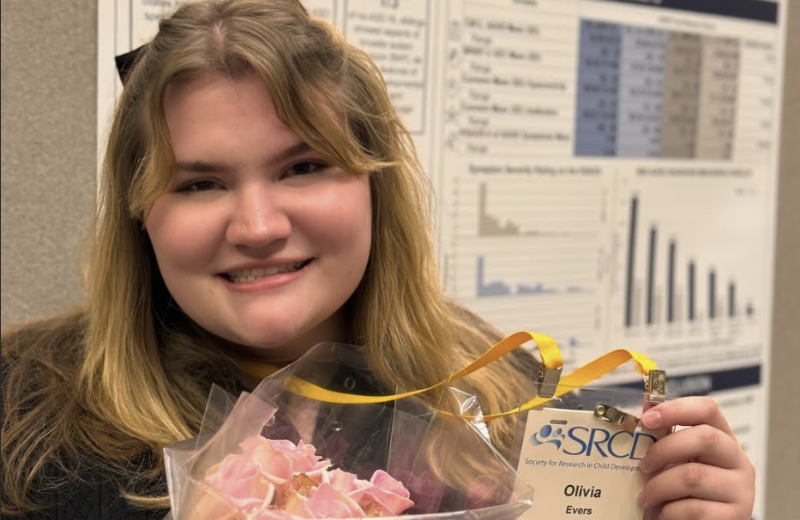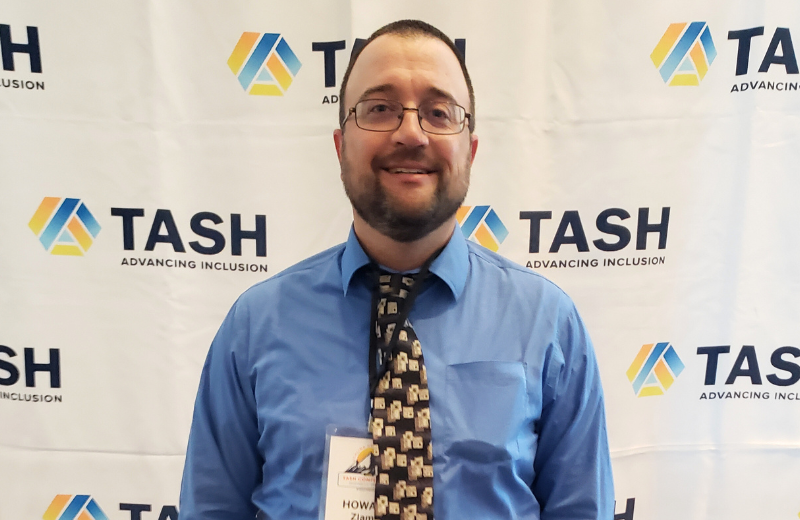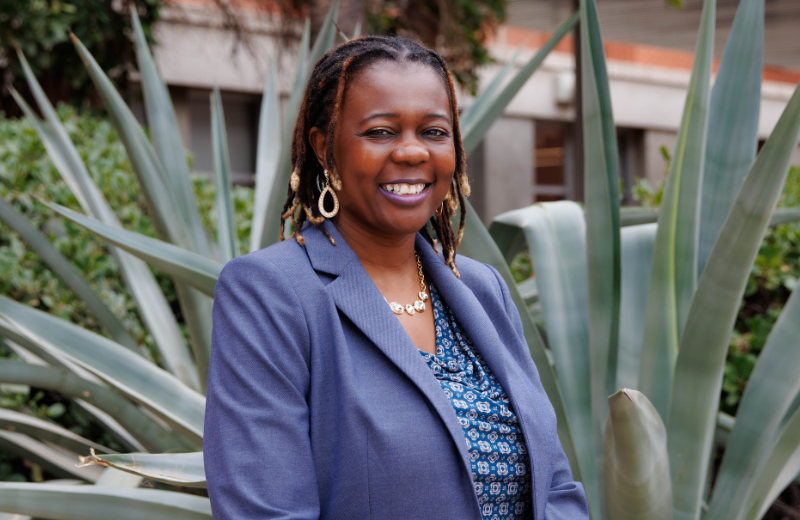
Olivia Evers (MN LEND 2024–25) helped refresh an online services directory for a Saint Paul organization that works to prevent prenatal alcohol exposure and support people affected by fetal alcohol spectrum disorders. “MN LEND taught me that passion matters, but acting on it is how real change happens,” she said.
Alt text for photo: Olivia Evers (MN LEND 2024-25) holds a bouquet of pink roses and her presenter badge. She stands in front of a conference poster she co-authored. More










